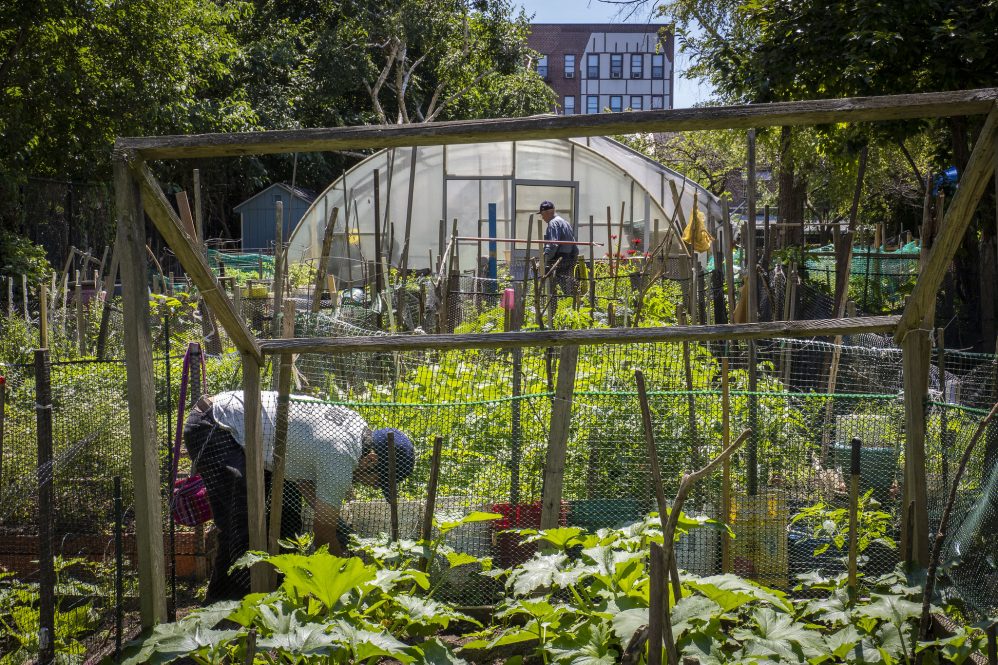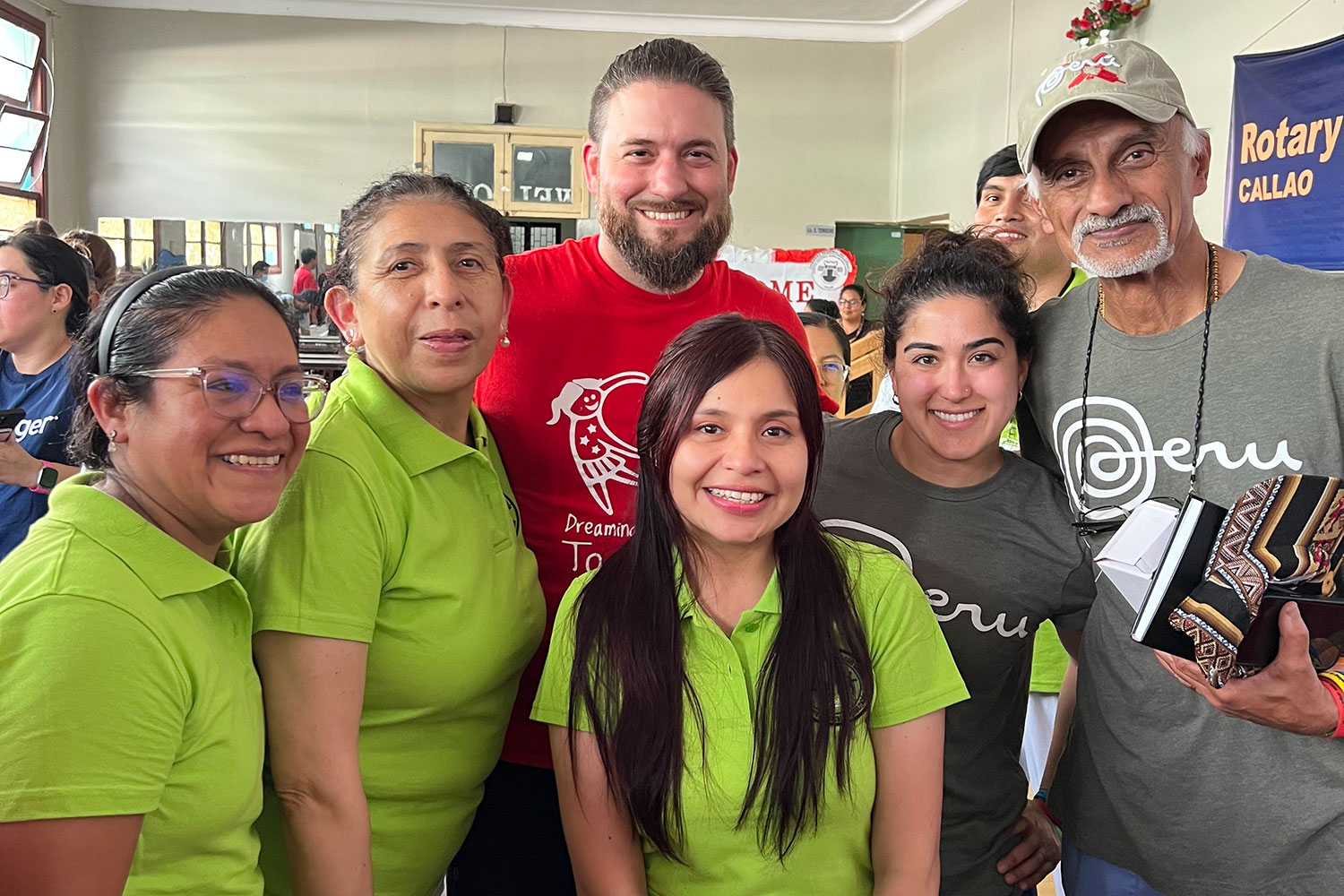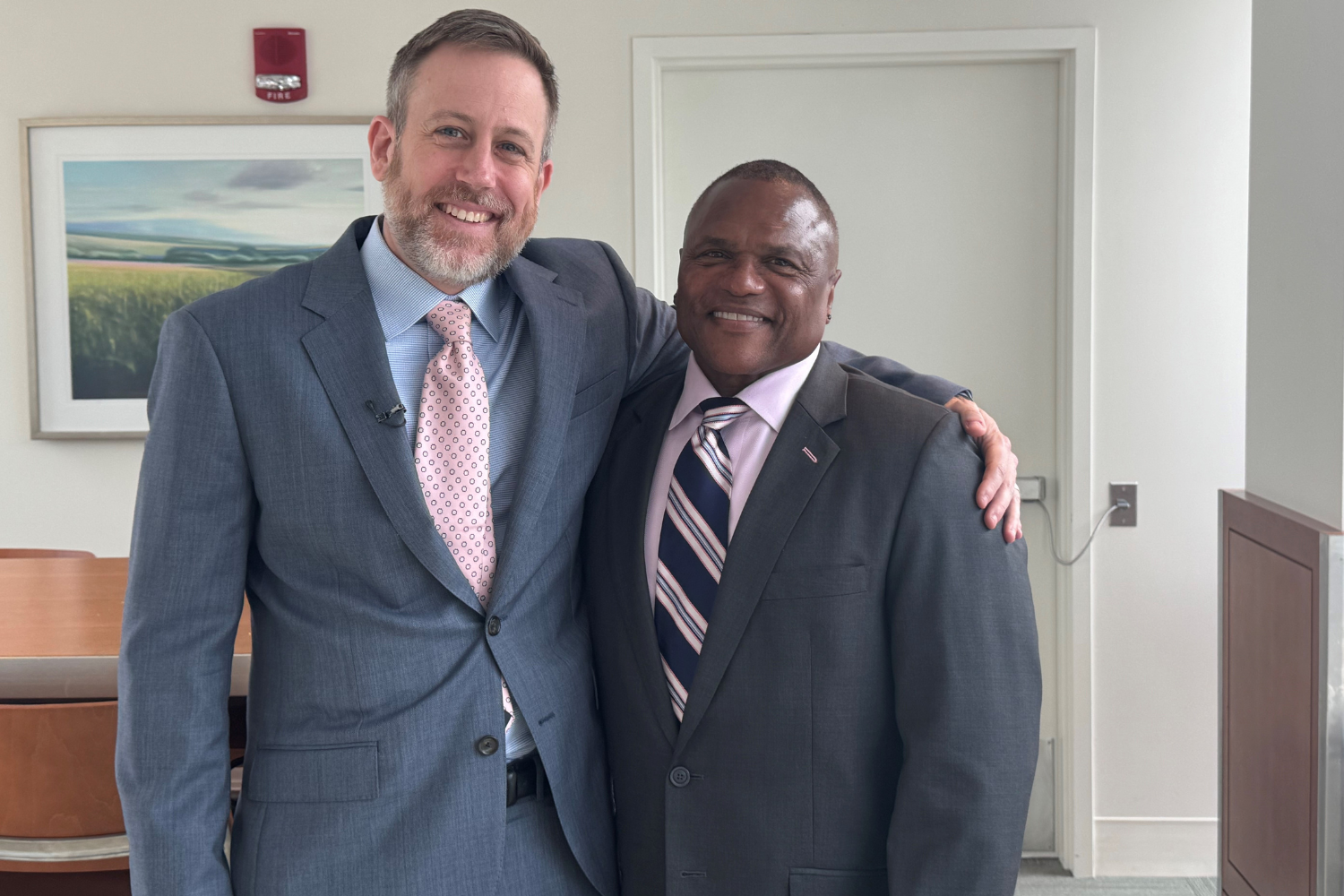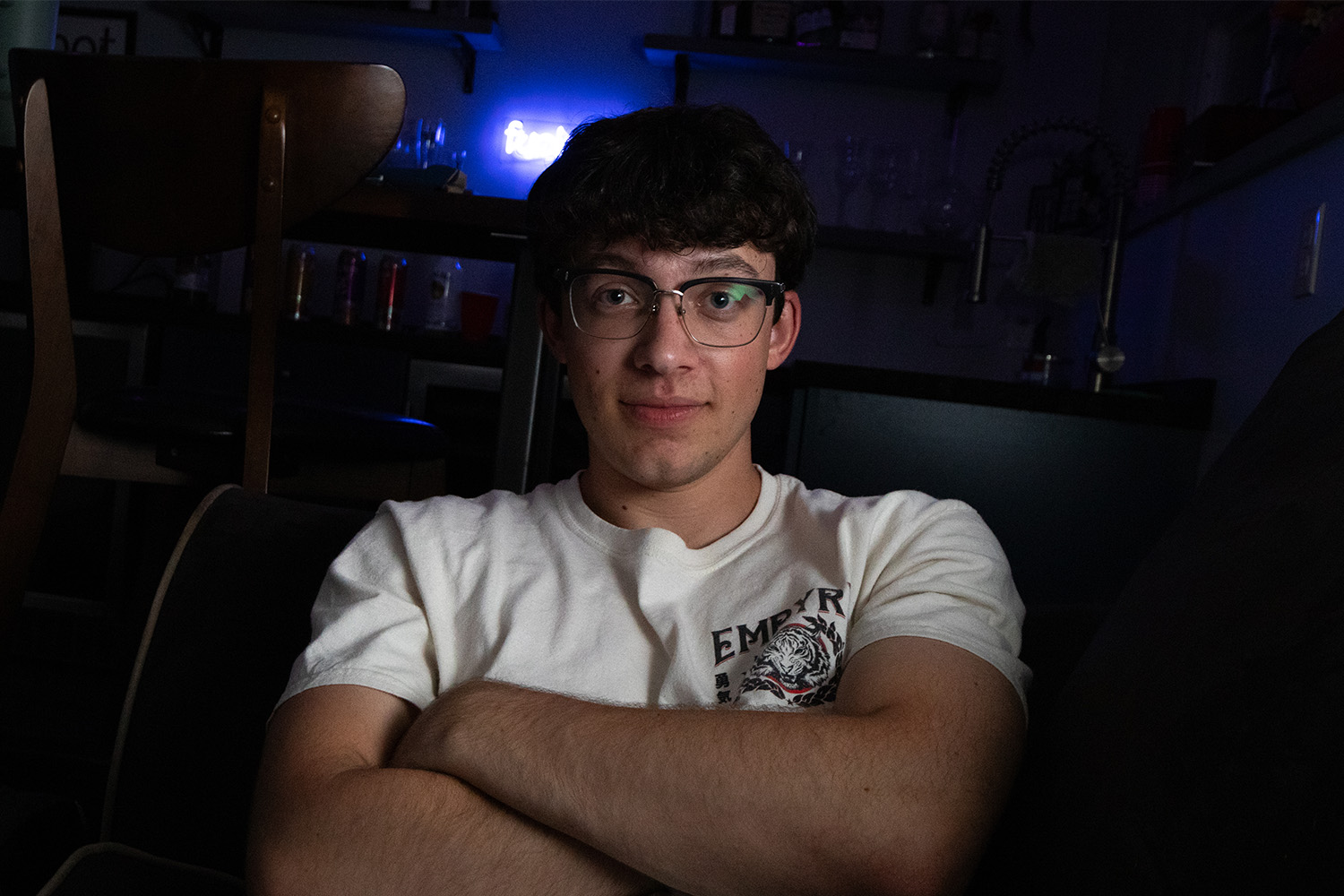This past fall the Center for Environmental Sciences and Engineering and the Institute of the Environment announced the Multidisciplinary Environmental Research Awards for Graduate Students (MERAGS) Program to encourage collaborative research and scholarship surrounding issues facing the world.
“The MERAGS Program provides critical support for graduate students to gain experience conducting collaborative research that transcends departmental or disciplinary boundaries. Moreover, such transdisciplinary projects represent accomplishments that will positively differentiate UConn students as they enter the job market. In addition, the interdisciplinary collaboration between faculty members that is initiated by the program often leads to longer-term interactions with respect to solicitation of grant support and production of novel or innovative research,” says Mike Willig, Executive Director of the Institute of the Environment.
A key piece of the MERAGS Program is its support for new collaborations that aren’t otherwise covered by students’ current funding sources, and specifically fosters cross-discipline collaboration. Working across disciplines is a vital part of solving environmental problems yet doesn’t happen frequently enough. This is an issue that the Institute of the Environment is actively working to address from the perspectives of research, education, and engagement.
The MERAGS committee reviewed ideas for new collaborations that spanned humanities, biophysical sciences, engineering and more. Seven projects were selected for funding.
Effects of Nutrients on Mercury Accumulation in the Long Island Sound
Mercury and methylmercury are two metal pollutants that have been increasing in coastal areas, including Long Island Sound. This has led to concerns about mercury accumulation in seafood (shellfish and finfish) and exposure to human consumers. Higher mercury and methylmercury exposure is associated with a suite of negative health impacts. This study will focus on these metal concentrations in Long Island Sound by investigating how levels change over time and how those changes relate to other nutrients in the ecosystem. Research will sample seawater, plankton and oysters to discover how mercury concentrations change over the course of two years. The goal of the research is to learn how nutrient levels impact mercury presence in coastal areas, and lead to greater understanding of coastal food webs.
Student: Anika Agrawal, Ph.D. candidate in Natural Resources and the Environment
Faculty Mentors: Jessica Brandt, Assistant Professor of Natural Resources and the Environment; Robert Mason, Professor of Marine Sciences and Chemistry
Climate Change and Technological Adaptation in Prehistoric Sicily
This project explores how past environmental changes impacted human uses of the landscape through the prehistoric Sicilian archaeological record. Focusing on the Pedagaggi site in Sicily, there is an opportunity to look at how humans adjusted to climate change 14,000 years ago. Access to important sites for making tools was limited by changing sea level, triggering widespread behavioral adaptation for Paleolithic humans. This study will examine rocks and tool assemblage data to determine how climate-driven changes in the landscape altered human access to toolstone and their associated behavior changes. This research has implications for understanding the deeply rooted relationships between human behavior and fragile ecosystems.
Student: Peyton Carroll, Ph.D. candidate in Anthropology
Faculty Mentors: Cristian Tryon, Professor of Anthropology; Robert Thorson, Professor of Earth Sciences
Development of an in situ Soil Screening Methodology of Urban Sites to Inform Agriculture
Urban agriculture is an increasingly promising strategy for all communities to have access to healthy, affordable produce, and promote sustainability by reducing the energy costs of food production and distribution. When establishing new gardens in urban areas, the cheapest route of production is to use existing soils. However, these soils can potentially put people at risk. Urban soils may have been contaminated by pollutants like manufacturing chemicals and spilled fuel – which means that vegetables growing in that soil can expose people to lead and arsenic. Therefore, it’s imperative that soils are tested before any food is grown. This research project will develop a new procedure for testing soil health using X-Ray Fluorescence and will examine how best to deploy on-site and laboratory-based measurements. Ultimately this research will help keep future urban gardeners safe.
Student: Hayley Clos, Ph.D. candidate in Environmental Engineering
Faculty Mentors: Nefeli Bompti, Assistant Research Professor of Civil and Environmental Engineering; William Ouimet, Associate Professor of Earth Sciences and Geography
Walking the Walk: An Analysis of the Drivers, Barriers, and Directions of the CT Electric Vehicle Market from 2012-2021
Electric vehicle (EV) use has skyrocketed in the past five years and it’s important to understand what a potential transition to all-electric will mean for Connecticut’s transportation sector. This research project will investigate what factors influence adoption of EVs, identify where EV infrastructure (e.g. charging stations) will be needed, and evaluate what type of vehicles are being replaced by new EVs. This Connecticut-focused project will help policymakers and EV investors make informed decisions for installing new chargers, creating incentives, and will provide the first in-depth analysis of low-carbon paths within the vehicle sector.
Student: Adam Gallaher, Ph.D. candidate in Geography
Faculty Mentors: Carol Atkinson-Palombo, Professor of Geography; Lyle Scruggs, Professor of Political Science
Assessing Coastal Vulnerability of Environmental Justice Communities
This project will examine the risk of sea level rise-related flooding in four Connecticut communities: Bridgeport, New London, Stratford and Norwalk. Research will examine both historical and future coastal flooding and investigate how that could inform greater community resilience. The study will assess community perceptions of flooding risk as well. Using workshops and outreach, the project will work towards building community action plans for climate change preparedness and mitigation.
Student: Madeline Kollegger, Ph.D. candidate in Natural Resources and the Environment
Faculty Mentors: Guiling Wang, Professor of Civil and Environmental Engineering; Mark Urban, Professor of Ecology and Evolutionary Biology
Stable Water and Bulk Carbon Isotope Compositions Reveal Variations in Tree Water Use During Spring Onset
Climate change is putting northeastern forests under increasing stress due to changing weather patterns. At the same time, invasive pests have heavily damaged forests in the past few decades. This project will use cutting edge techniques in biogeochemistry and ecohydrology to understand how trees take up water from their roots and how that impacts photosynthesis. The study will specifically investigate how much trees rely on spring snow melt to power photosynthesis. Understanding this will help scientists understand potential forest impacts as climate change causes disruption to water patterns.
Students: Joshua Snarski, Ph.D. candidate in Ecohydrology, and Kevin Li, Ph.D. candidate in Natural Resources
Faculty Mentors: James Knighton, Assistant Professor of Natural Resources and the Environment; Michael Hren, Associate Professor of Earth Sciences
No Volunteers? Addressing CT’s Unpreparedness for Climate Change-Induced Weather Events by Uniting Local Emergency Management Directors, Libraries and Residents
Each town of Connecticut is required to have an Emergency Management Director (EMD) who is tasked with making sure the town is prepared for weather events, which are increasingly common due to climate change. Although this role is crucial, most towns have volunteer EMDs or EMDs who hold multiple other roles within local government leaving them limited time to devote to emergency management and preparedness. Meanwhile, socioeconomic disparities continue to increase in Connecticut and many residents are unprepared and uninformed about weather events and risks. This project will use ethnographic fieldwork to investigate issues of weather preparedness in Connecticut from two perspectives – the government personnel in charge of handling preparedness and response; and the residents that are impacted by weather events. Using the information gained in the study, the project will pilot use of local libraries as a space to connect residents and EMDs to improve weather event preparedness.
Student: Ashley Walters, Ph.D. candidate in Anthropology
Faculty Mentor: Eleanor Ouimet, Assistant Professor of Anthropology; Kenneth Lachlan, Professor of Communication
The outcomes of the MERAGS projects will be impactful. “The funding from the MERAGS program has provided me with the opportunity to conduct crucial analyses of contaminants to monitor the state of urban soil health. Through my research, I am hopeful to lay the groundwork for analyzing and managing urban soil health for the purpose of widespread sustainable urban agriculture, which greatly benefits both the community and the environment,” shares grantee Hayley Clos.
For more details on the Multidisciplinary Environmental Research Awards for Graduate Students, please visit: https://cese.uconn.edu/2022-2023-mergas/. To learn about ways the Institute of the Environment or the Center for Environmental Sciences and Engineering bridges disciplines to drive environmental success, visit: https://environment.institute.uconn.edu/ or https://cese.uconn.edu/, respectively.



